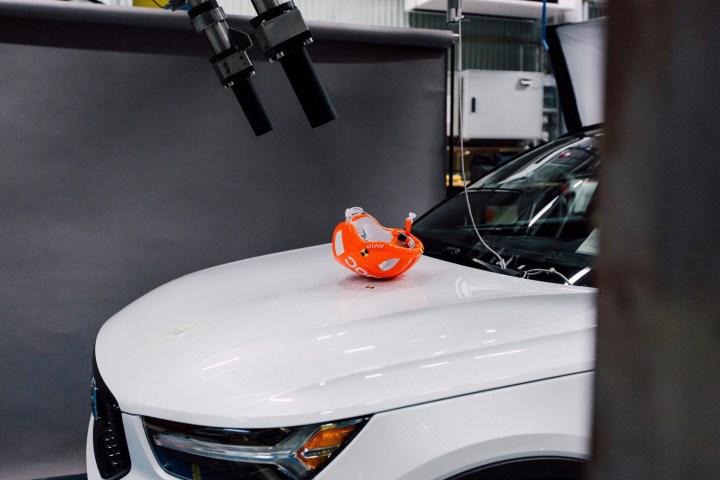
Volvo is taking its traditional obsession with safety beyond cars. The Swedish automaker teamed up with fellow Swedish firm POC to develop a series of crash tests for bike helmets against cars. The companies claim this is a world first, and it should prove relevant considering the increasing popularity of cycling in cities.
Crash tests are part of a larger research project to understand the types of injuries cyclists are most likely to sustain in a collision with a car. In the tests POC bike helmets are mounted on a rig, then launched at different parts of a stationary Volvo at varying speeds and angles. The tests, according to Volvo, are based on existing regulations for pedestrian safety, which mandate that vehicles be designed to minimize injuries when striking pedestrians. This allows researchers to make a direct comparison between wearing a helmet and not wearing a helmet, the company says.
Volvo hopes to improve on current bike-helmet testing procedures, which a statement from the automaker described as “fairly rudimentary.” Current tests involve dropping helmets from different heights on either a flat or angled surface. They don’t account for collisions between cyclists and vehicles, Volvo claims.
Car-bike helmet crash tests will help POC improve the safety of its helmets, Volvo claims. The automaker also hopes to use the research in its own vehicle-design process. This isn’t the first time Volvo and POC have collaborated to improve cyclist safety: they previously worked on a pilot program that used connected tech to allow cars and bicycles to “talk” to each other in order to prevent collisions. Volvo is also spray painting bicycles to make them more visible at night.
Volvo is getting more aggressive in the deployment of safety tech. The automaker recently announced that it would limit cars to 112 mph beginning in 2020. In 2021, Volvo will launch a new feature called Care Key that will let owners set speed limits when other people drive their cars, and will begin equipping cars with driver-facing cameras to monitor for distraction or intoxication sometime after that. It’s all part of an effort to ensure that no one is killed or seriously injured in a new Volvo after 2020.


